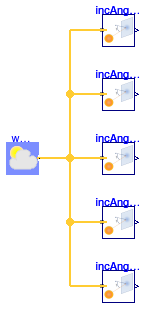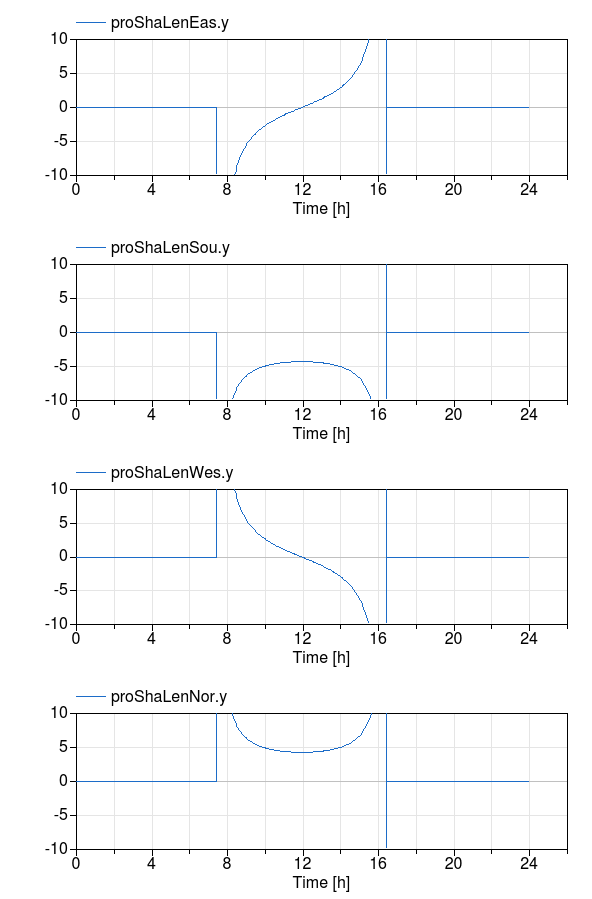

Collection of models that illustrate model use and test models
This package contains examples for the use of models that can be found in Buildings.BoundaryConditions.SolarGeometry.
Extends from Modelica.Icons.ExamplesPackage (Icon for packages containing runnable examples).
| Name | Description |
|---|---|
| Test model for solar incidence angle | |
| Test model for projected shadow length | |
| Test model for zenith angle |
 Buildings.BoundaryConditions.SolarGeometry.Examples.IncidenceAngle
Buildings.BoundaryConditions.SolarGeometry.Examples.IncidenceAngle
Test model for solar incidence angle

This example computes the solar incidence angle on tilted surfaces. There are fives surfaces, a horizontal surface and a surface that faces Norths, East, South and West.
Extends from Modelica.Icons.Example (Icon for runnable examples).
 Buildings.BoundaryConditions.SolarGeometry.Examples.ProjectedShadowLength
Buildings.BoundaryConditions.SolarGeometry.Examples.ProjectedShadowLength
Test model for projected shadow length

This example computes how far a shadow of a 2 meter high object is in different directions. The figure below shows this length for January 1 in Chicago. Note that the length of the shadow is negative if the azimuth is selected to be south because the shadow is towards the north.

Extends from Modelica.Icons.Example (Icon for runnable examples).
| Type | Name | Default | Description |
|---|---|---|---|
| Length | h | 2 | Height of object [m] |
 Buildings.BoundaryConditions.SolarGeometry.Examples.ZenithAngle
Buildings.BoundaryConditions.SolarGeometry.Examples.ZenithAngle
Test model for zenith angle

This example computes the zenith angle, which is the angle between the earth surface normal and the sun beam.
Extends from Modelica.Icons.Example (Icon for runnable examples).